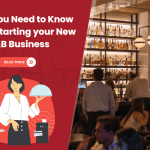If you are an aspiring business owner who is looking to sell products or services, then you have come to the right place. There are 5 simplifying steps for setting up a Company.
We’ll discuss each below and also give you the link on how to go about it.
Step 1: Popular Business Entities
Sole Proprietorship
Sole proprietorship is the simplest and cheapest form of business structure in Singapore. However, as it does not constitute a separate legal entity with its owner and therefore it has a higher risk than any other business entities. The business owner is personally accountable for all liabilities incurred during the course of the business.
Private limited
The private limited company is the most popular business entity in Singapore. Unlike business entities such as a sole proprietorship and limited liability partnership.
New start-up companies pay zero tax on the first S$100,000 of chargeable income (profits) for the first three consecutive years. A further 50 percent exemption is given on the next S$200,000 of chargeable income (profits)
Your choice of business entity depend on your product and services that you are offering. Number of owners will be a critical factor too. Once you have decided the type of business entity, you may proceed to set up your business.
Read more: The information required to set up a business in 24 hours
Step 2: Type of Office
Depending on the product and services that you are offering, you could opt to rent a serviced office, use your existing home or engaged a co-worker space. For a start-up company, I would greatly recommend cutting down expenses for the 1st year. With a serviced office, you can immediately jump start up business within days with all the necessary infrastructures. Photocopier and meeting rooms are readily available. You can also UPSIZE your room at any time when you starts employing more manpower.
For business that needs big storage place, you may like to source for cheap and big warehousing in industrial estate. There are also many self-storage company that offer a room for your purchases.
Read more : Setting up the Virtual office
Step 3: Website
Today, more and more consumers use the internet to search for the products or services they need. Your small business will gain credibility by having a website. Without one, potential customers will go to your competitors that do. If you already have a website but it is “home-made”, having it professionally redesigned will provide your business with a professional image which will inspire even greater confidence.
A website is available to our customers 24 hours, providing them with the convenience of reviewing your products and services when your store or office is closed, especially when you are start-up company. With today’s busy lifestyles, this is a great selling point when making a purchase decision.
If you want to build an online store for yourself, a CMS is your easiest and cheapest option. Although building a website used to be only for expert, today’s it can be done by someone who has the basic technologies know-how in a few hours.
Read more :Setting up a professional website
Step 4: Accounting Software
Maybe, you feel that using a spreadsheet is just sufficient because you do not want to spend EXTRA money. With a simple computerised accounting system, it helps you in bill your customers on a timely basic and keep tracks of your CASHFLOW. With a better knowledge of business’s cashflow status, you can ensure the smooth increase in sales with positive working capital. There are many Cloud Accounting Software on the market. Pick one that helps you to attain your goal.
Read more: Free Cloud Accounting Software
Step 5: Open your bank account
Leaving the most important issue to the end. You need a bank account and please do not ask your customers to transfer the sale to your personal bank account because it is not a professional way. Typically, we would choose the following local banks, DBS, UOB and OCBC. The bank charges varies and you should choose one that suit your requirements.
Read more: DBS Entrepreneur’s Account for Start-Ups







